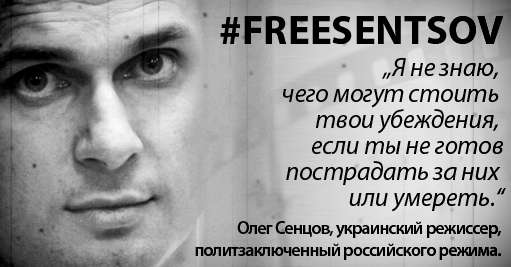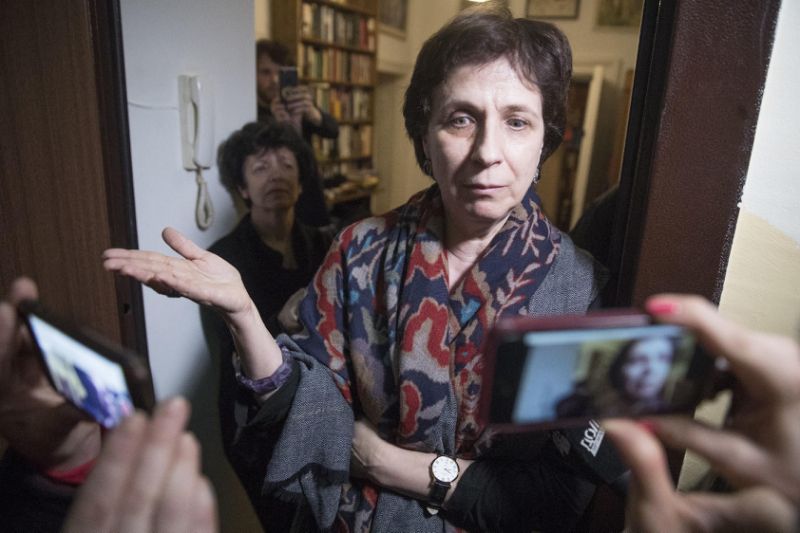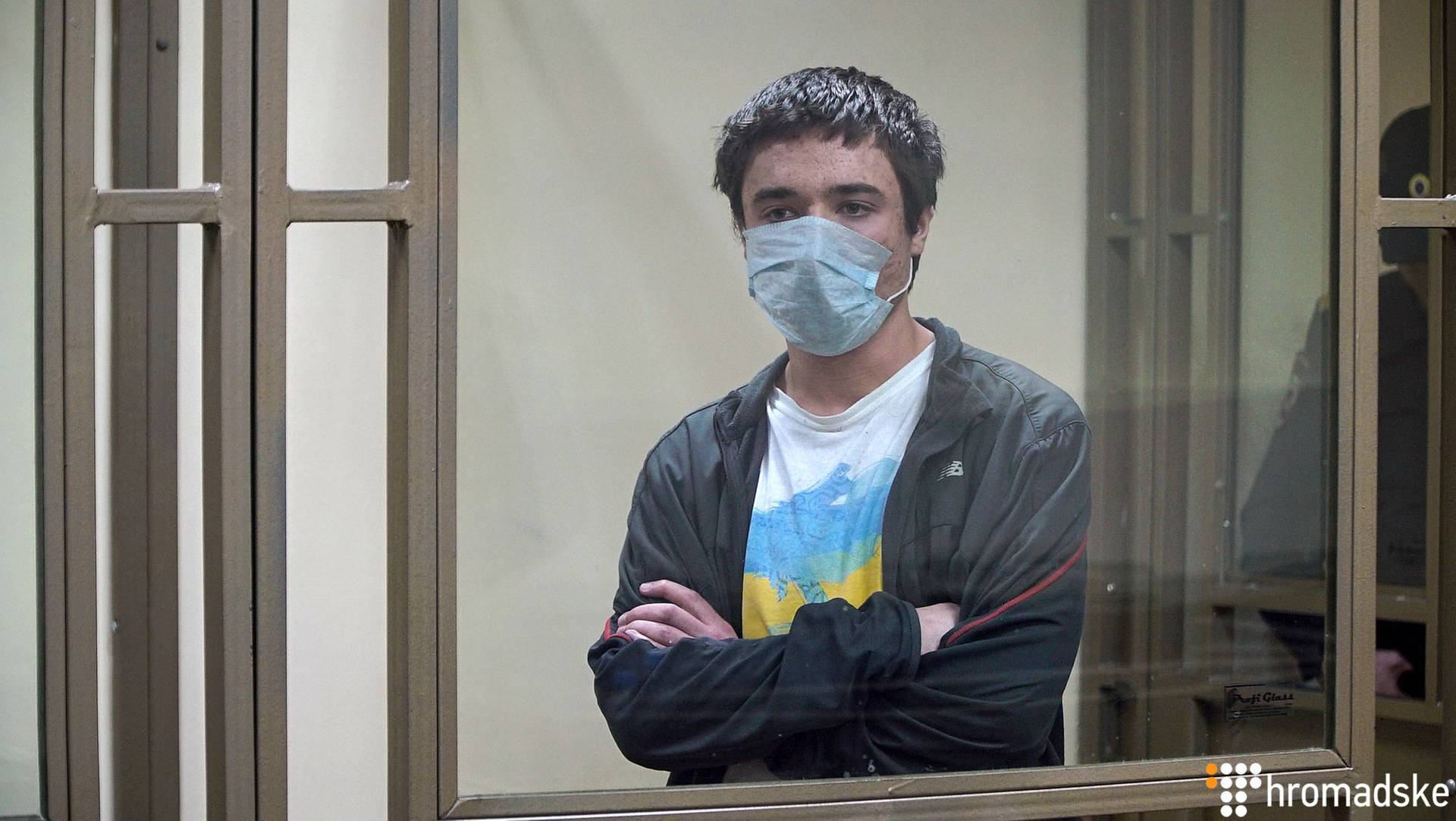Russia’s attack against those opposing the illegal annexation of Crimea is not surprising—after all, Moscow is experienced in stifling real and imaginary enemies in the territories under control. It’s worth recalling the summer of 1940, when the Soviet Union, in compliance with the pact with Hitler, occupied and forcibly incorporated into itself the three sovereign Baltic states. For Lithuania, Latvia, and Estonia, the new rule meant the beginning of massive Stalinist repression. The first victims of that repression were reportedly Estonian sailors who were sent to trial in Leningrad for attempting to evacuate the president of their republic abroad after the Red Army invaded Estonia. The sailors were absurdly accused of ‘betraying the Fatherland,’ the USSR, though they had not had any obligations with regard to the occupying power. At the time of the incriminated act, Estonia had not even been formally annexed.
One always calls a state ‘fatherland’ when preparing to murder people.
Biographer of the Crimean Tatar leader
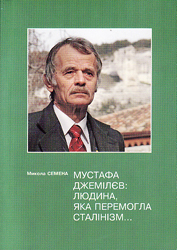
“One always calls a state ‘fatherland’ when preparing to murder people.” This quote, attributed to the Swiss writer Friedrich Dürrenmatt, opens the essay deconstructing the myth of ‘Crimean Tatar separatism,’ which was propagated by the pro-Russian forces in Ukraine before and during the infamous presidency of Viktor Yanukovych. The essay was part of the book Mustafa Dzhemilev: The Man Who Defeated Stalinism. It was published in Simferopol, the administrative capital of Ukraine’s Crimea, in 2010—nearly two decades after Ukraine, along with the Baltic states and other former Soviet republics, gained independence. At the time, many believed that annexation of foreign territories, repression, and deportation on ethnic grounds had long become history. The reservation made by the author of the book: “the situation in Crimea got much more troubling after the Russian-Georgian War of August 2008,” perhaps looked like an exaggeration for the most readers at the time.
Two names were written on the cover of the book. The first one was Crimean Tatar, the name of the hero of its biographic narration: Mustafa Dzhemilev, the acknowledged leader of the Crimean Tatar people and prominent Soviet dissident. The second name was Ukrainian, the author’s one: Mykola Semena.
Now it is three years since the Russian military invaded Crimea. Over these years, the Kremlin-installed occupation ‘authorities’ have systematically persecuted the citizens of Ukraine for the circumstances that a priori could not be subject to Russian jurisdiction.
Tortured and convicted by puppet Crimean ‘judges,’ the participants of the Euromaidan Revolution in Kyiv Oleksandr Kostenko and Andriy Kolomiyets are serving their sentences in the prisons of the Russian Federation. The Crimean Tatar public figures Akhtem Chiygoz, Ali Asanov, and Mustafa Dehermendzhy were arrested and are on trial for taking part in a mass pro-Ukrainian rally in Simferopol. The rally took place on 26 February 2014, a few weeks before the faked ‘referendum’ and ‘legalization’ of Crimea’s annexation by Moscow.
Read also: Remember the Crimean Tatars jailed for resisting Russian occupation
As President Putin complacently ‘jokes,’ the limits of Russia do not end anywhere. They end neither in space nor in time, it seems, just like the borders of the ‘Soviet Fatherland’ in 1940...
On 28 February 2017, the district ‘court’ in Simferopol is to start the hearing in the case of Mykola Semena. The author of Mustafa Dzhemilev’s biography, he wrote back in 2010 how the ideologists of Yanukovych regime and their pro-Kremlin allies were seeking to ban the Crimean Tatar democratic self-government body, the Mejlis, and fabricating the phantom of ‘Tatar separatism’ in Crimea.
History took a tragic turn, of which he had explicitly warned: the Mejlis was banned by the Russian Supreme Court, while the Crimean Ukrainian Mykola Semena was himself accused of ‘separatism.’ His case fits within a system of blatant violations of law and fundamental civil liberties under the occupation.
So what does Russia have against him, and why does his prosecution require an immediate and consolidated response of the international community? Let’s look into details.
Honored journalist of Ukraine
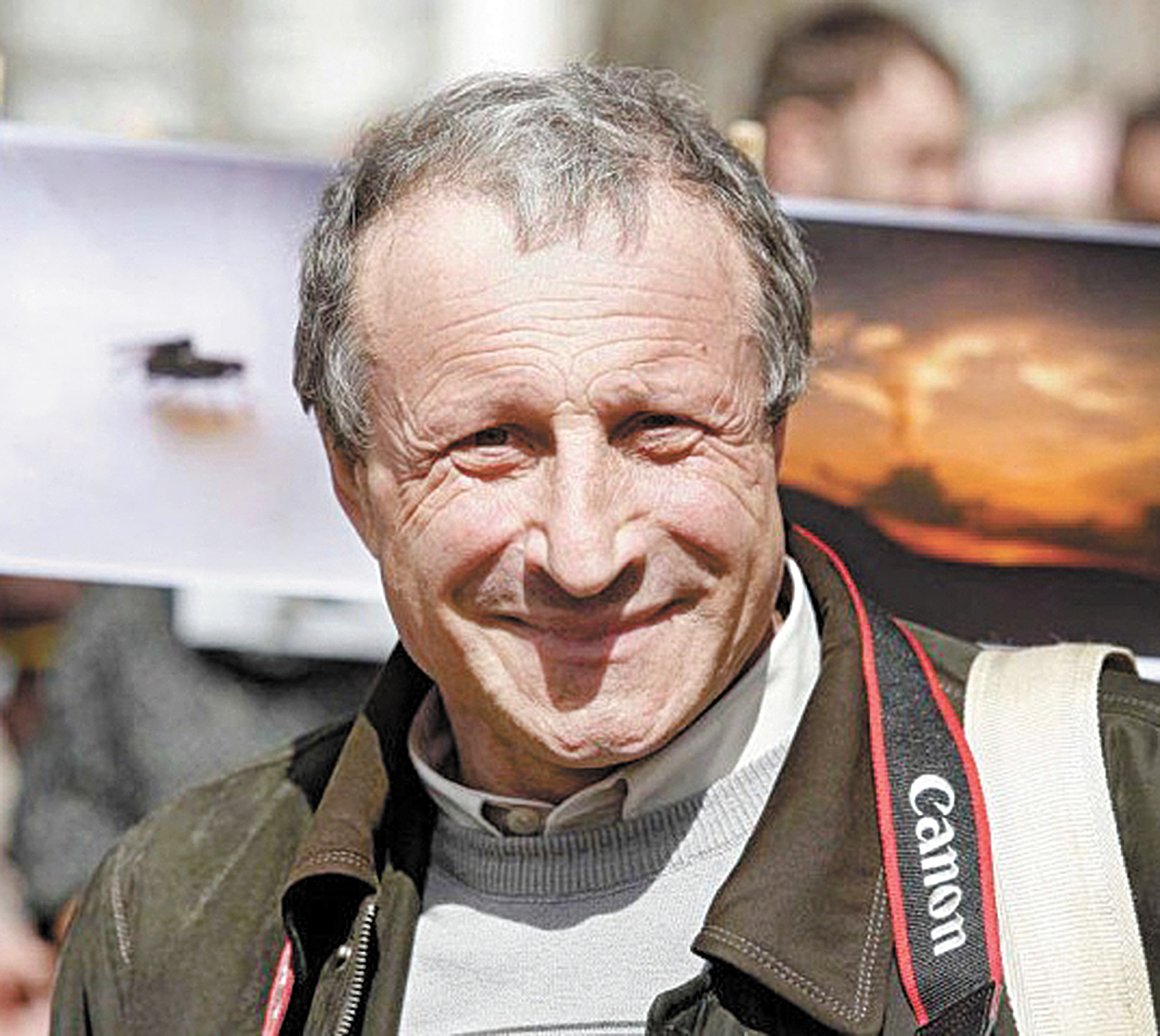
Mykola Semena is sixty-six years old, of which almost fifty he dedicated to journalism. He is one of the most experienced journalists in Crimea and has the title of Honored Journalist of Ukraine.
A quarter century ago, in December 1991, he attended the signing ceremony of the Alma-Ata Declaration on the Establishment of the Commonwealth of the Independent States aimed to somehow substitute for the dead Soviet Union. Semena got the chance to ask a question to the leaders of new Russia and Ukraine: he asked them about the arrangement of Crimean Tatars’ return to their homeland. The whole native people of Crimea had been deported to Central Asia in 1944 on Stalin’s order and denied the right to return until the last years of the communist empire.
When Russia annexed Crimea in 2014, Semena had already retired but started writing for Krym.Realii, the project of Radio Free Europe/Radio Liberty launched to provide the audience with information about Crimea free of Russian propaganda. The Kremlin-installed ‘prosecutor’ of Crimea and Russian central censorship agency Roskomnadzor took the dangers this resource posed for the occupation regime seriously and tried to block the access to it for Crimean users.
Meanwhile, the copies of Semena’s book on Dzhemilev were withdrawn from the libraries in the peninsula. Books are often doomed to go through the ordeals along with their authors.
Prosecuted for disagreeing with Putin’ s Crimea landgrab
In December 2016, Mykola Semena was officially charged with the encroachment on Russia’s territorial integrity under the legal norm that provided for the punishment up to five years in prison. That was a relatively new provision: it was introduced into the Russian Criminal Code in May 2014, shortly after Putin’s Crimean gamble. The first ‘court’ hearing in the Semena case was scheduled for 17 February 2017, but it was postponed. His lawyer Emil Kurbedinov was unable to prepare for the session as he himself had served a 10-day arrest on a grotesque pretext (a video reposted on a social network in 2013), and all his working materials were temporarily confiscated by Russian security officers.Kyiv should not allow for Crimea to remain under Russian occupation longer than under the German one
The case of Mykola Semena is strikingly barefaced. Russian detectives did not bother with forging scandalous testimonies of secret witnesses or slipping explosives, drugs, or drives with classified information as was made in the trumped-up cases of ‘terrorism,’ ‘espionage,’ and ‘sabotage’ against other innocent Ukrainian citizens.
This time, there are only words that form sentences and paragraphs. It is all about Semena’s article published under his pen name on Krym.Realii in the fall of 2015. Semena writes about the blockade of goods and energy supply from mainland Ukraine to Crimea, which was launched by Ukrainian activists, saying that it is the first and necessary step toward the liberation of the peninsula. The indictment quotes from his text: “Kyiv should not allow for Crimea to remain under Russian occupation longer than under the German one” (the reference here is to the time of Nazi rule over Crimea in 1942—44).
For Russia’s Federal Security Service (FSB), such words are enough to send you to jail.
Russia could prosecute most world leaders for same ‘crime’
Semena’s indictment looks like a distorting mirror as Russia had organized and sponsored separatism in Ukraine, Moldova, and Georgia. In September 2015, the Kremlin demonstratively brought its support to centrifugal tendencies abroad to a new level, having arranged and paid for the world congress of separatist organizations in Moscow. Putin and his henchmen justify the possible violation of the territorial integrity of foreign countries by referring to the right of nations to self-determination. However, they do so in a highly inconsistent manner, categorically denying this right to the de jure federal constituents of Russia itself.
“As for separatists, they are really present in Crimea,” Semena quoted Mustafa Dzhemilev in his 2010 book. “They are powerful. They are fed from abroad. They are fed by our closest neighbor. Moreover, this neighbor does not hide it and claims in the open press that Crimea is a part of Russia. [...] They bluntly say that one day Crimea is to return ‘to the bosom of Mother Russia.’”
The beneficiaries of the 2014 special operation known as ‘Russian Spring’ in Crimea flaunt their own complicity in tearing the peninsula away from Ukraine. In 2015, the collection of testimonies by pro-Russian collaborators was published in Sevastopol under the subtitle that sounds like self-exposure: The Memories of Separatists. And simultaneously, the ‘separatist article’ of the Russian Criminal Code has become the tool of punishing those who publicly criticize the Kremlin’s imperial expansion.
Read also: ‘Support Ukraine and you’ll go to jail,’ Kremlin tells Russians
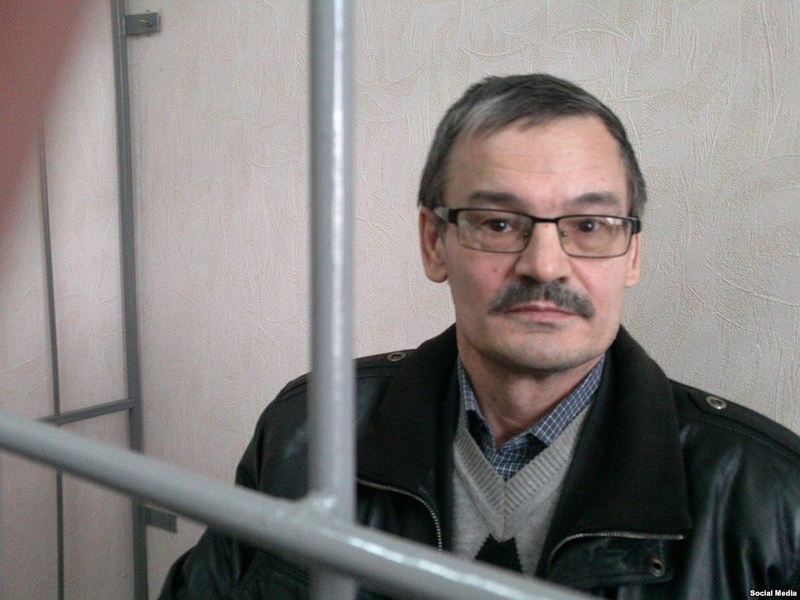
Rafis Kashapov, the activist from Russia’s Tatarstan, got three years in prison for condemning the annexation of Crimea and military intervention in Donbas on social networks. In Crimea itself, similar proceedings were taken, apart from Mykola Semena, against the journalists Anna Andrievska and Andriy Klymenko, Crimean Tatar Mejlis chairman Refat Chubarov, his deputy Ilmi Umerov, and Feodosia activist Suleyman Kadyrov. Andrievska, Klymenko, and Chubarov have safely left for mainland Ukraine while Umerov and Kadyrov remain in the occupied territory under the control of local investigative ‘authorities.’
Read more: Who is Ilmi Umerov, the Crimean Tatar Russia so fears?
Ukraine’s MFA urged to help free Russian Tatar activist jailed for stance on Crimea
Commenting on their misfortune, both Ilmi Umerov and Mykola Semena ironically say that Russia could prosecute most world leaders for the same ‘crime’ of rejecting her violent attempt to reshape the map of Europe. The two dissidents stress their favor not only of Ukraine’s but also of Russia’s integrity—within the internationally recognized borders.
'Legal nonsense'
From the legal point of view, the Russian ‘separatist article’ cannot be applied in the Crimean context at all. First, the Russian Constitution grants the priority of the international law (which implies the unchanged status of the Crimean peninsula since 1991) over the domestic legislation.
Second, as follows from Russia's own law on the state border, the unilateral annexation of a foreign land does not result in the extension of the sovereign territory of the Federation. Under this law, the borders of Russia, which limit her territory, are established only in accordance with 1) the frontiers of the Russian Soviet Republic as they run at the time of USSR collapse and 2) international agreements with neighboring states. The Russia-Ukraine Treaty of 1997, which is currently in force, affirms the inviolability of the existing mutual border.
“No one, including Mykola Semena, is able to call for the encroachment of Russia’s territorial integrity with regard to Crimea,” sums up Professor Mikhail Savva, the Russian political scientist and expert for the defense. “Semena wrote nothing on Voronezh Oblast or Krasnodar Krai and did not call for separation of these [federal] subjects. He wrote exclusively about the Autonomous Republic of Crimea. Hence, the charges against him are unlawful.”
Ten months of house arrest
The pretrial investigation lasted for ten months. The journalist spent this time under house arrest, unable to leave the territory of Crimea and continue his professional activities. Mykola says he is longing for his work.
Over these months, the security forces were trying to gather any evidence to discredit him. Now the case file includes the results of surveillance and hacking of his computer and email. The ‘court’ approval for covert interference in his personal life was granted retroactively, which means that it was illegal from the very start. A special program planted in his PC made screenshots every minute when his monitor was on. “I had a feeling that someone was sitting inside the computer,” Semena recalls. As an outcome, the FSB gained access to the writing process and personal correspondence of the journalist. The hard copies of those screenshots constitute the bulk of the case material.
The indictment repeats a libel claim that the defendant was “insufficiently objective” in his publications and held “clearly pro-Ukrainian” views, as if it were a crime. The libel’s author, Sergey Meshkovoy, is now a chief propaganda mouthpiece for the Kremlin-made Luhansk separatist ‘republic’ in the occupied part of Donbas. At the same time, no other journalist questioned in the case said a bad word about Semena.
Semena needs medical treatment as soon as possible

Mykola’s lawyers Emil Kurbedinov and Andrey Sabinin admit that a not guilty verdict in this political case is highly improbable despite the obvious lack of offence itself.
Ignoring the presumption of innocence, Russia has included their client to the federal black list of people who allegedly have something to do with ‘extremism’ or ‘terrorism.’ Meanwhile, Semena is suffering from heart trouble and spinal disease; he needs surgical intervention as soon as possible. Based on the certificates of his medical examination, the experts from the National Institute of Neurosurgery in Kyiv conclude that the delay of operation can lead to disability. But the elderly journalist is not allowed to leave Crimea even for medical treatment.
The International and European Federations of Journalists have spoken in support of Mykola Semena, along with 27 human rights organizations from many European and Asian countries united in Civic Solidarity Platform. The Parliamentary Assembly of the Council of Europe, OSCE Representative on Freedom of the Media, and Amnesty International state that the persecution of the Ukrainian journalist for expressing his opinion must stop. In Brussels in autumn 2016, Semena (in absentia) was awarded Pavel Sheremet Prize for “not being afraid to risk his freedom and safety while defending free speech in Crimea.”
In his note published a few years before Russia started hybrid war on Ukraine, Mykola Semena quoted from Ernest Hemingway’s The Old Man and the Sea: “A man can be destroyed but not defeated.” Not defeated, he added on his own, if one’s ‘weapons’ are unity with other people and joint action.
Perhaps when writing this, he thought about the hero of his biographic book, Mustafa Dzhemilev. But today, Semena’s own life proves that these words apply to him too. World politicians, international organizations, and all those who value the freedom of expression should take action right now. The Kremlin’s attempt to destroy Mykola Semena as person and journalist is intolerable. Joint action is needed to save him, to stop neo-Stalinist political repression and protect the right to call a spade a spade: that Crimea was stolen by Russia and has to return back to Ukraine.
“Stalinism is afraid of humanity and mankind. Thus, today the world should not leave Ukraine alone with reviving Stalinism—because sooner or later it will try to cross the border as it happened in the past. Together we should stand against Stalinism and prevent its return to our lives and the lives of our children.”
These insightful words written by Mykola Semena in 2010, are crying to us now, on the days when he goes on trial. The world must hear.


